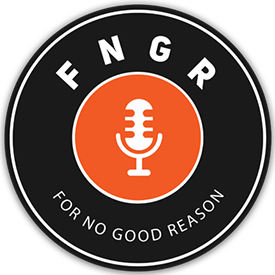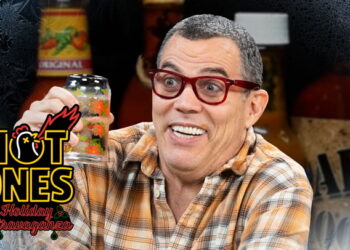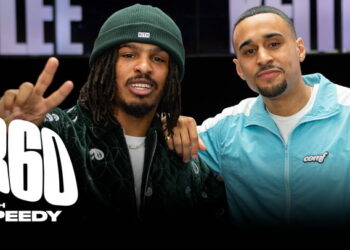The use of drill lyrics as evidence in criminal prosecutions has long been a source of controversy.
This time last year, the BBC published a report that investigated 67 trials that took place across the UK from 2005 onwards, where road rap and UK drill were used in evidence. The vast majority of the defendants in those cases were young Black men and boys, and almost half were teenagers.
Now, after concerns were raised by defence lawyers, academics and campaigners, the Crown Prosecution Service (CPS) has announced it is updating its guidance on the use of drill music as evidence in criminal trials. A youth group in Nottingham called The Pythian Club who have also taken part in a “listening exercise” with the CPS. They warned that using drill lyrics stopped defendants getting a fair trial.
Nick Federici—a youth worker at The Pythian Club—has been trying to address the stigma surrounding drill. He argues that although music videos and social media often “speed up” the process, the real cause of the violence is poverty and deprivation.
“Drill is just the youth expressing themselves,” he said. “Drill doesn’t cause crime in deprived areas. It’s poverty, it’s envy, it’s so many other things going on, underlying issues. Obviously, if somebody gets on a song and calls my name out and tells me this and that, it’s going to provoke me. I don’t believe it can start and cause violence, but it can definitely speed up a process, just through pure embarrassment. It might make someone feel like they need to react because they’ve been spoken about on the internet.”
Claire Lindley, a chief crown prosecutor who is also the CPS lead on serious violence, said that drill should only be used as evidence if it is important and relevant to a case: “When we’re deciding whether to use any piece of evidence in a criminal case we have to decide whether it’s probative evidence and not unduly prejudicial to the defendant. When it comes to drill music we will obviously apply the same rules. We’re really, really keen to make sure that our prosecutors don’t use any kind of stereotypes or anything of that nature. We certainly shouldn’t be using the video if it has simply a prejudicial effect.”
In the US, Jay-Z has been pushing for changes to the law that would make it harder to use rap lyrics as evidence in trials. Ethne Quinn, an academic at the University of Manchester and a rap expert in court cases, is in favour of the law. “We need something like that here,” she said. “There needs to be a really good reason to allow rap videos and lyrics before a jury. It’s wide open to unfair and racist misreading.”
She also said she’s seen examples of lyrics used as confessions, even when they’d been written before an incident.
“Gang discourses are already so racially charged,” said Quinn, “producing serious racial disparities in criminal justice outcomes, as has been widely recognised. Once you add popular music to the mix, which conjures strong feelings and thoughts, then the gang discourses become even more open to abuse, reproducing broad racist tropes.
“Violent boasts about stabbing—granted often very graphic and brutal—are presented as specifically correlating with a crime when they’re just widely used stock phrases in drill. Splicing lines together to change meaning and make lyrics seem to match an incident is a practice I’ve seen on several occasions.”







